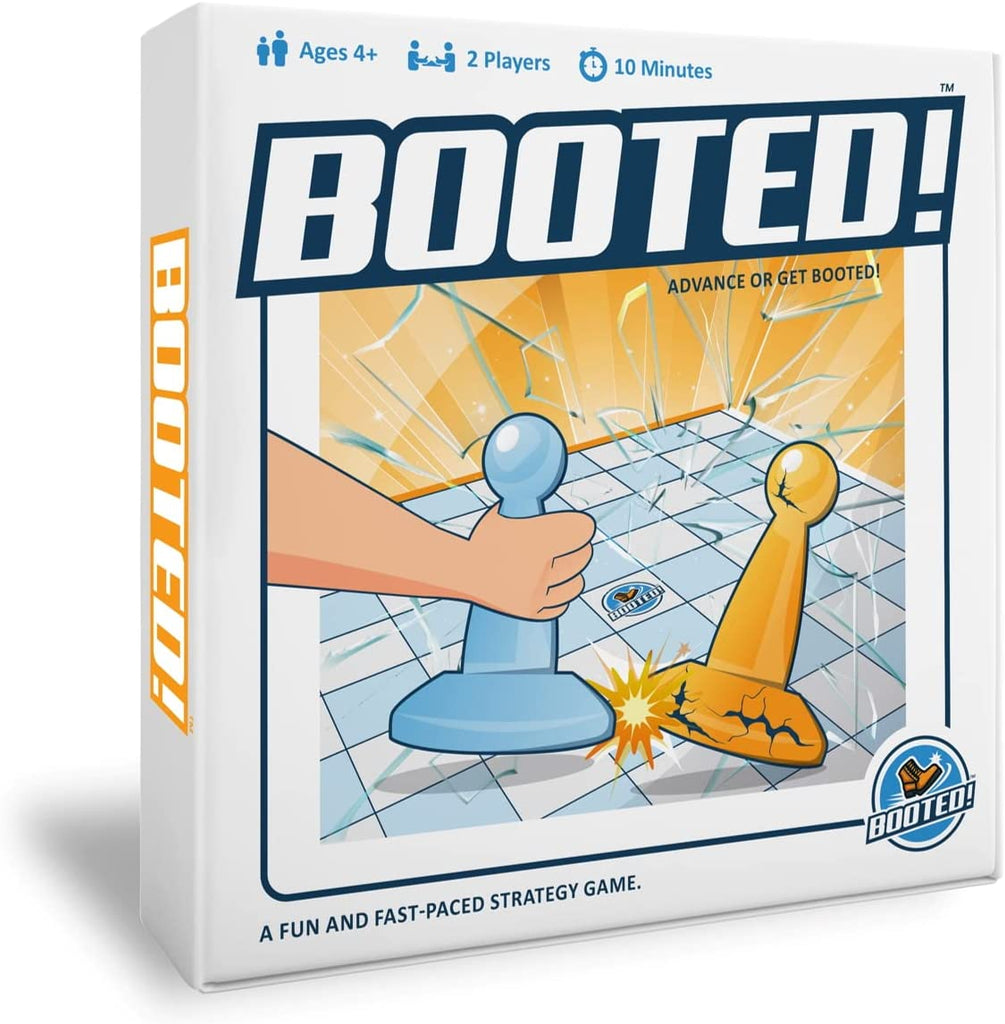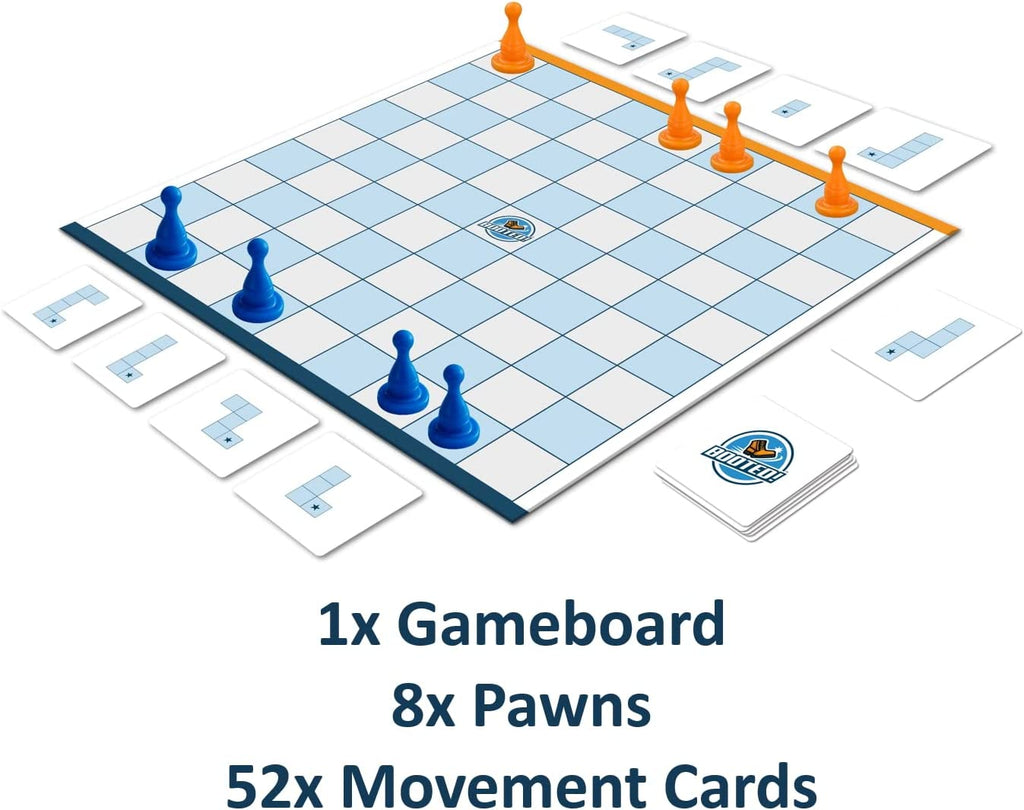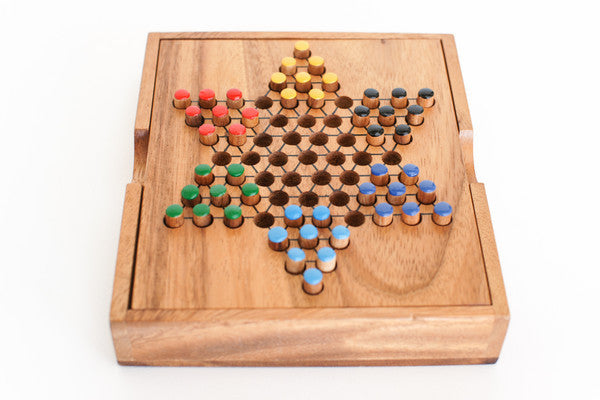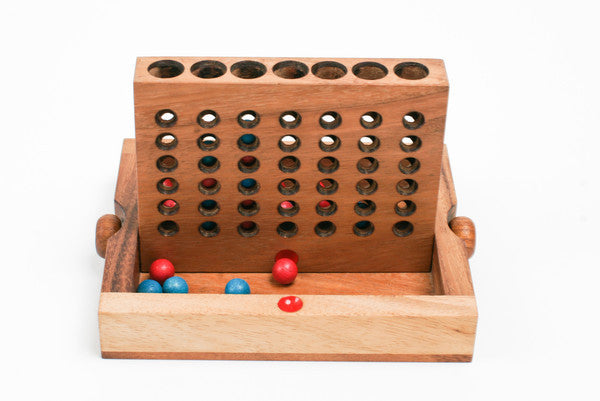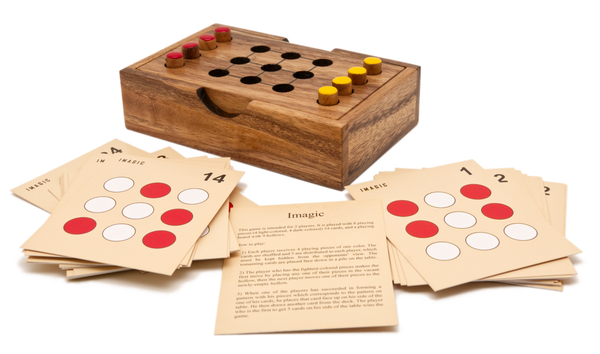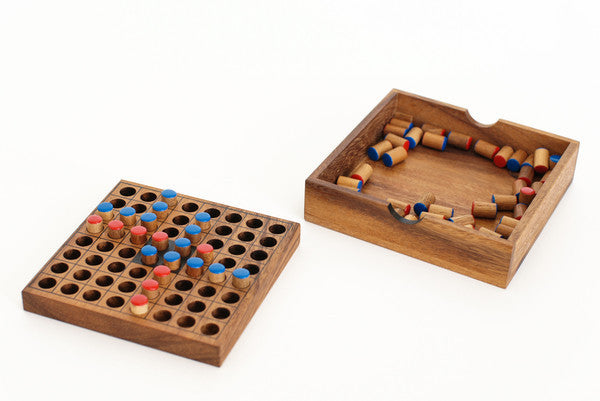Booted
Sold Out
Family game:
Related Items
Chinese Checkers - Wooden Game
Sold Out
A strategy board game which can be played by two, three, four, or six people, playing individually or with partners. The game is a modern and simplified variation of the game Halma.( invented in Germany in 1892) The rules are simple, so even young children can play
Moves can be made in any direction either moving one space into an empty slot or jumping over a peg into an empty space.
You can do several jumps (over one peg at a time) in one move. You may jump over your own or your opponents counter.
Connect Four - Wooden Game
Sold Out
First trademarked in 1974 but forms of the game have existed for much longer than that.
Imagic
$17.99
This Imagic strategic game is intended for 2 players. It is played on board with 9 hollows. It includes 8 pegs (4 yellow and 4 red) and 34 cards.
How to play:
1) Each player receives 4 playing pieces of one color. The cards are shuffled and 5 are distributed to each player, which must be kept hidden from the opponents’ view. The remaining cards are placed face down in a pile on the table.
2) The player who has the lightest-colored pieces makes the first move by placing any one of their pieces in the vacant hollow, then the next player moves one of their pieces to the newly-empty hollow.
3) When one of the players has succeeded in forming a pattern with his pieces which corresponds to the pattern on one of his cards, he places that card face up on his side of the table. He then draws another card from the deck. The player who is the first to get 5 cards on his side of the table wins the game.
Othello (Reversi) - Wooden Game
$22.69
Named after the Shakespeare play due to its traditional black and white pieces Othello was invented in England in the late 1800's. Designed as a simplified version of Go, Othello (or Reversi) offers a fun challenge for all ages.
Initially the board is empty except for 4 pegs - 2 of each color- placed in the central square on opposing corners. On each turn a player places a peg of their color onto the board in such a way as to capture one or more of the opponent's pegs, if you can't capture a peg you must skip your turn. Pegs are captured when a peg placed on the board sandwiches one or more of your opponents pegs between two pegs of your own color. Pegs can be captured horizontally, vertically and diagonally.
The game is over when the board is full or neither player can move, the player with the most pegs of their color wins.
The board allows you to play another Game: Solitaire.
At the beginning of the game the peg in the center of the board is removed. Moves are made by jumping a peg over an adjacent peg, removing each peg as you pass over it. The aim of the game is to remove all the pegs until only one peg is left in the center of the board.

